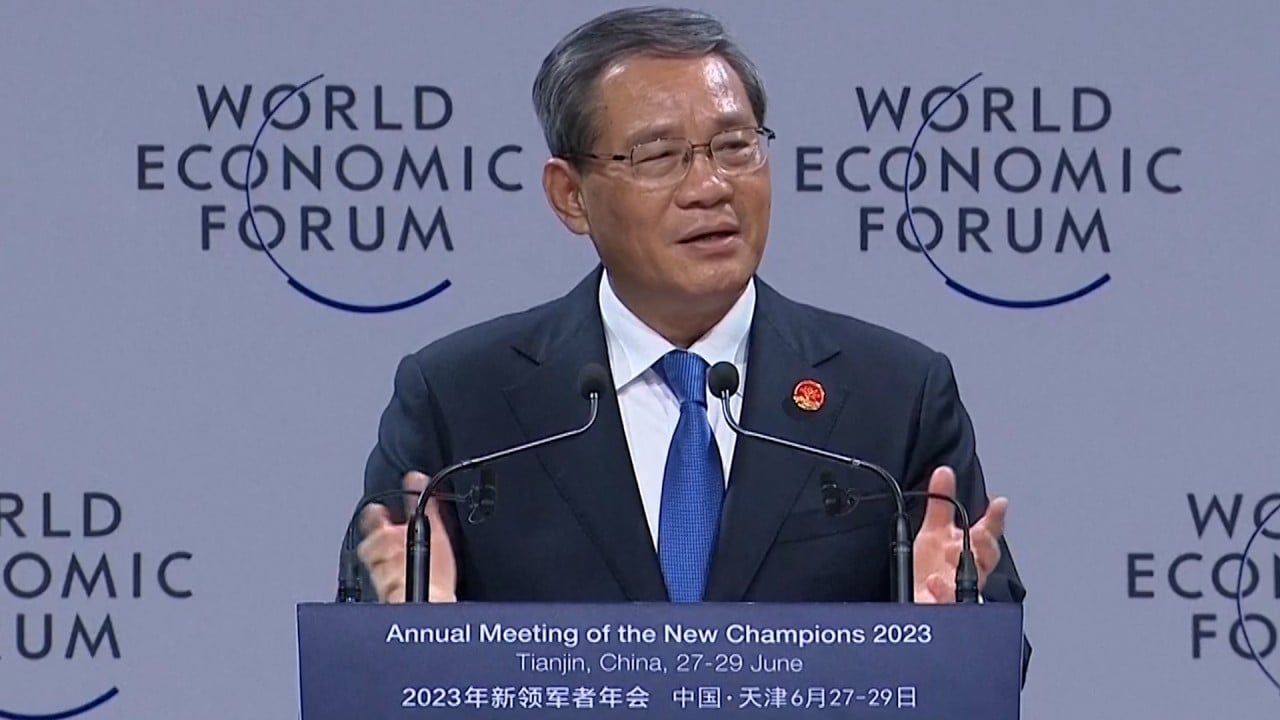Beijing holds talks with foreign and private companies as they await action at China’s third plenum

Ahead of the much-anticipated party congress, foreign companies are apparently watching closely to see whether politicians are walking the talk, and Beijing is reiterating the need to attract foreign investors and support the private sector, which has suffered severe losses in confidence.
Premier Li Qiang said on Tuesday that China will “continue to push forward high-level opening-up,” facilitate market access and “implement the comprehensive lifting of restrictions on foreign investment in the manufacturing sector,” the official Xinhua news agency reported. At the same time, the country’s top economic planner stressed the need to support China’s private sector through loans, fundraising and an end to selective law enforcement.
“The success of foreign companies in China is closely linked to China’s economic development,” Li told a room full of more than 200 business representatives from about 40 countries and regions gathered for the World Economic Forum’s annual meeting of new champions, also known as Summer Davos.
“Everyone is welcome to invest in China, delve deeper into China and share in the dividends of China’s high-quality development,” Li told the crowd.
Also on Tuesday, deputy director of the National Development and Reform Commission Zheng Bei delivered a report on progress in supporting private enterprises at a committee meeting of the National People’s Congress, Xinhua reported.
Qualified private companies should receive help with IPOs, financing and refinancing, Zheng said, while measures would be taken in capital markets to promote the development of technology companies and finance start-ups. “Selective” prosecution, Zheng said, must be prevented.
These remarks, coming ahead of the much-anticipated third plenum – a party meeting to set economic strategies for the next five to 10 years – are part of a series of ongoing promises to improve expectations and boost confidence.
In the first five months of the year, foreign investment inflows into China fell 28.2 percent to 412.5 billion yuan compared with the same period in 2023, according to data from the Ministry of Commerce.
“Although talk of opening up is nothing new, Premier Li’s comments are encouraging that reform and opening up remain a high priority for policymakers at the highest level,” said Lynn Song, economist at ING Greater China. “Foreign companies will likely be watching to see whether policymakers follow through on their words.”
Years of restrictions on outbound travel to China due to the pandemic have already created a “climate of excessive pessimism” among foreign investors, he added.
Modest economic growth, the six-year-old trade war between the US and China and regulatory uncertainty in China have hampered offshore investment this year, says Ker Gibbs, executive-in-residence at the China Business Studies Initiative at the University of San Francisco.
Gibbs, who is visiting the eastern Chinese city of Qingdao this week, senses that there is “still enthusiasm” among foreign entrepreneurs. “It’s not just about the size of the market,” he says, “it’s about the quality of the companies and the products.”
Amid persistent allegations of excessive government subsidies and overcapacity in some Chinese sectors, Li told the forum that Chinese products were “competitive” because companies, including foreign ones, were “on the path of fair competition.”
“We are willing to work with companies from all over the world to better promote the innovative development of the global economy,” he said, according to Xinhua.




